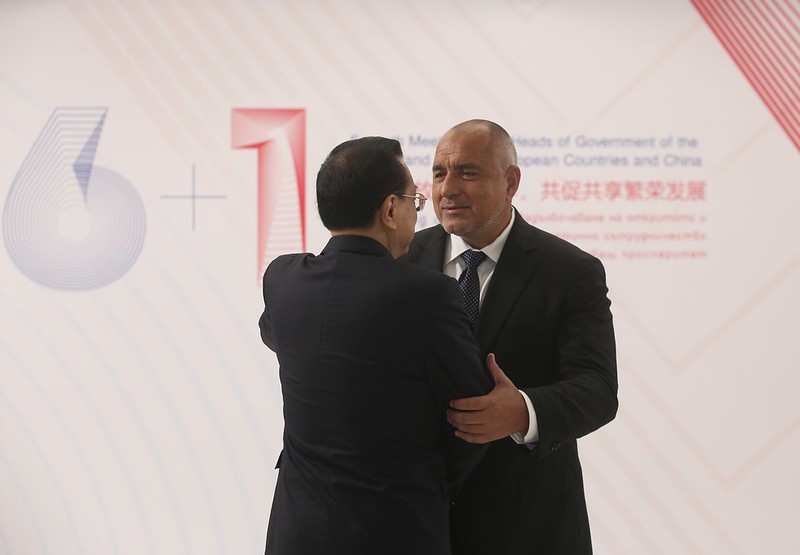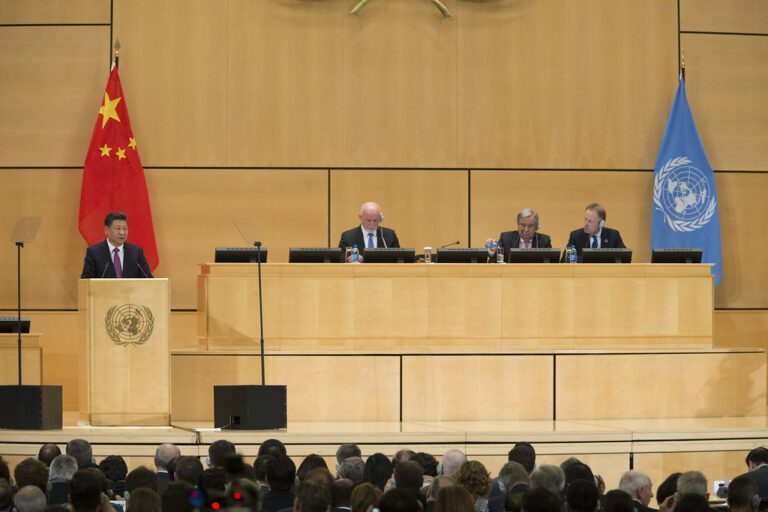
China’s influence in Bulgaria has been distinguished by two overarching tendencies in recent years. Chinese economic presence in the country has remained limited in comparison to other Central and East European states, marked by unrealized plans for infrastructural projects. Yet, there has been a continual enunciation of Chinese pledges for investment and an increasing domestic Bulgarian political push for greater bilateral engagement, which has promoted Beijing’s economic, digital-technology, media and cultural activities in Bulgaria.
Behind the Threshold
How can these trends be accounted for? On the one hand, the circumscribed extent of China’s footprint has been the result of three domestic and international patterns. First, there has been a lack of a concerted Bulgarian political strategy (consensually shared by the major political forces) based on a realistic assessment of what could be offered, gained and lost (including the erosion of governance standards and fiscal resilience) through Chinese-Bulgarian economic cooperation. This lack of political clarity has been reflected in a public perception that is linked to expectations of Chinese cash flowing into the country coupled with a sense of disappointment that Bulgaria is falling behind in its chances of attracting such opportunities.
Second, China has focused its financial offensive on other countries and regions of Europe, which are of greater strategic and economic importance to Beijing. In Western Europe, Chinese investors target strategic assets and research and development networks, with the largest and wealthiest European countries attracting the greatest amount of investment. In Central and Eastern Europe (CEE), China is operating the 17+1 platform (formerly 16+1), concentrating its financial firepower on the five non-EU members in the 17+1 (Albania, Bosnia and Herzegovina, Macedonia, Montenegro and Serbia). Collectively, in 2016-2017, these countries received roughly half of the Chinese investment across the 16 CEEs in transport infrastructure, energy, real estate and M&A deals, although the combined GDP of those states is only one-sixteenth of the rest of the 11 economies in the 16+1 (data is still only available for the 16+1 rather than the recent regrouping into 17+1, which includes Greece). Indeed, Beijing aims to achieve greater influence within the EU by establishing a foothold in the prospective EU members’ economies lacking the capital for vital infrastructure projects.
Finally, the history of Chinese-Bulgarian interactions has shown the importance of the wider international framework conditioning the scope of the bilateral partnership. Just as Sofia’s primary geopolitical orientation towards the Soviet Union during the Cold War meant that Bulgaria’s approach to China remained a function of its relations with Moscow (i.e., Sofia aligned itself tightly to Kremlin policies during the Sino-Soviet split and the subsequent thaw), the Bulgaria’s attitude to China will also likely remain derivative from the priorities of EU and NATO membership. Indeed, so far Sofia has not provided Beijing a break from the EU rules on public procurement and competition.
Foot-in-the-Door
Yet, coexisting with the general trend of the lagging and limited extent of the Chinese presence in Bulgaria, there has been a recent political push in the country for deeper engagement with Beijing. During the Bulgarian Presidency of the Council of the EU in the first half of 2018, the Prime Minister of Bulgaria hosted a 16+1 meeting with China, proposing the establishment of a Global Center for Partnership between China and the 16+1 countries in Sofia. Additionally, President Rumen Radev has stepped up attempts to establish closer cooperation between Bulgaria and China. In a recent meeting with the Chinese Prime Minister Li Keqiang in July 2019, Radev lamented Bulgaria’s status as a blind spot on the map of Chinese investment and singled out priority areas for cooperation, including infrastructural projects, increased financial interactions (such as the opening of a branch of a Chinese bank) and expanded collaboration in the IT sector. Chinese President Xi Jinping and Rumen Radev also upgraded the level of China-Bulgaria relations to a strategic partnership.
These high-level political initiatives can provide enabling conditions for and further accelerate the upward direction in China’s corporate-investment, digital-technology, media and cultural activities in Bulgaria. For instance, in 2018, the Bulgarian and Chinese Ministers of Agriculture opened an office in Plovdiv providing e-platform communication services for the newly created 16+1 Logistics Center and Pavilion for E-Commerce in Agricultural and Other Products in Bulgaria. In the realm of infrastructure, the China Machinery Engineering Corporation (CMEC) signed in 2019 a €120 million contract with the joint stock company Logistical Center-Varna for the joint development of port infrastructure in Bulgaria’s largest seaside city of Varna. This is the first project of its kind that Beijing is going to realize in Bulgaria and is part of the Belt and Road Initiative. China has also made a major investment in innovative Bulgarian business. The China-CESEE Investment Corporation Fund (a $500 million private equity fund launched in 2014 through financing provided by the Exim Bank of China) acquired a 10% share in Walltopia – a world leading Bulgarian manufacturer and installer of mounting walls. Moreover, the China National Nuclear Corporation (CNNC) has expressed interest in the construction of the Belene nuclear power plant in cooperation with Russia’s Rosatom.
In terms of China’s digital-technological presence in Bulgaria, Huawei ranks in the top 2 in the Bulgarian phone retail market with roughly 1.5 million devices sold annually. Huawei has cooperated with all of Bulgaria’s telecommunications operators. The Bulgarian Telecommunications Company, the largest telecom in the country and former fixed line monopoly, has established a strategic partnership with the Chinese firm in the field of cloud technologies. Also, Huawei’s biggest deal in Bulgaria was linked to the supply of Telenor’s (the largest Bulgarian mobile operator) 4G equipment in 2014. In the media sphere, China Today has become a recent addition to the Bulgarian newspaper market, having the same publisher as Russia Today. China has also expanded its cultural footprint through the establishment of a Confucius Institute (housed by Veliko Turnovo University), cooperative academic initiatives in many Bulgarian universities (particularly through the opening of an office of the Bulgarian-Chinese Center of Shanghai Jiao Tong University at the University of National and World Economy) and Huawei’s IT literacy program for public schools.
Looking to the Road Ahead
Overall, despite its limited scope, China’s presence in Bulgaria has been on the rise. There has been a strong will on the part of top Bulgarian politicians to cooperate with China and receive a larger share of the Belt and Road Initiative investments. Thus, judging from the mounting political interest in Bulgaria towards cooperation with China, it is likely that economic relations will continue to intensify. Yet, the balance of bilateral engagement will remain constrained by the absence of a more sustained political-strategic and economic vision on the part of both Sofia and Beijing as well as Bulgaria’s primary focus on the EU and NATO vectors of its foreign policy.
Written by
Rumena Filipova
Dr. Rumena Filipova is the founder and chairperson of the Institute for Global Analytics in Bulgaria. Her research concentrates on the politics and international relations of Central and Eastern Europe, with a focus on media and disinformation, identity, and the authoritarian influence of Russia and China in the region. She holds a DPhil in International Relations from the University of Oxford.


